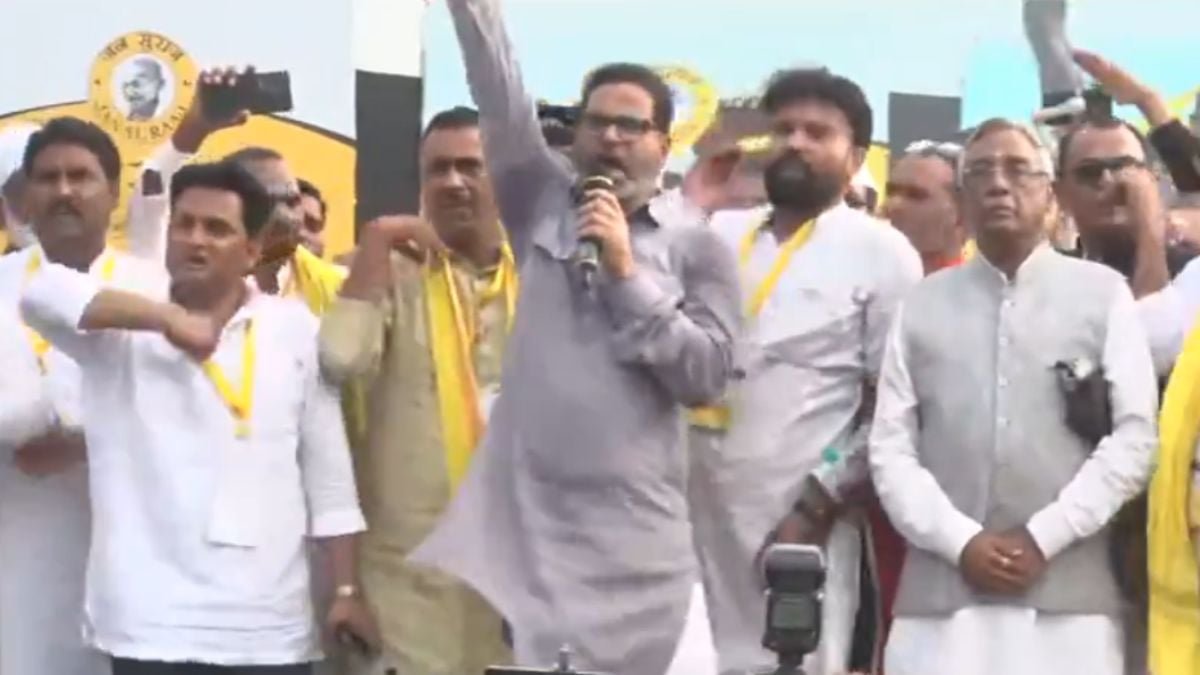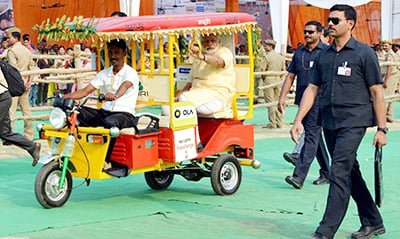Typically, Bihar’s bypolls to elect four lawmakers with short-term tenures would be deemed inconsequential. The longevity of the incumbent Nitish Kumar government is under no threat even if the ruling NDA is defeated in all four constituencies.
However, the entry of PK Pandey and his political outfit Jan Suraaj has piqued significant interest. For those outside Bihar, PK Pandey may be an unfamiliar figure, but he is no stranger to Bihar’s intricate caste conundrum – a challenge that the famous election strategist Prashant Kishor now faces.
However, PK’s decision to undertake a padyatra across Bihar two years ago, to connect with the people and understand their needs, came as a bolt from the blue to the established political players. These politicians typically seek votes based on caste affiliations without prioritising the real issues faced by the electorate. They dug up PK’s surname, “Pandey”, which he had dropped years ago, to assert that he is an upper-caste Brahmin – a minority community comprising just 3.65% of the more than 130 million population of Bihar, the second most populous state in India after Uttar Pradesh and the most densely populous state in terms of land-population ratio.
PK, as he is popularly known, previously served as the virtual second-in-command to Chief Minister Nitish Kumar, as the Vice President of his Janata Dal (United) party. He played a crucial role in shaping Nitish’s victories and collaborated closely with Lalu Prasad Yadav and his Rashtriya Janata Dal (RJD). Interestingly, his caste identity was not a significant concern back then.
PK’s padyatra was a resounding success, as he invested significant time and effort on the ground for two years before formally announcing the launch of Jan Suraaj, his non-political platform, as a political party on October 2 followed by his decision to field candidates in all four constituencies that went to the polls on November 13.
Before analysing the potential impact of Jan Suraaj on Bihar’s politics, it is essential to examine PK’s illustrious career as an election strategist. He was closely associated with the then Gujarat Chief Minister Narendra Modi, quitting his UN job to work for Modi and the BJP in Gujarat. PK played a key role in ensuring Modi’s emphatic victory in the state in 2012 and was at the forefront when the BJP named Modi as its prime ministerial candidate for the 2014 Lok Sabha elections. The iconic “chai pe charcha” programme was one of PK’s orchestrations. However, he later parted ways with Modi after the latter became the Prime Minister, reportedly due to PK’s expectation of a significant role at the central level.
Since his split from the BJP a decade ago, PK has successfully worked with several prominent political figures, including Arvind Kejriwal (Aam Aadmi Party) in Delhi, Nitish Kumar (Mahagathbandhan) in Bihar, Capt. Amarinder Singh (Congress) in Punjab, Jaganmohan Reddy (YSR Congress) in Andhra Pradesh, M.K. Stalin (DMK) in Tamil Nadu, Mamata Banerjee (Trinamool Congress) in West Bengal, and N. Chandrababu Naidu (Telugu Desam Party) in Andhra Pradesh. All these leaders benefited from PK’s election strategies and went on to win their respective elections. Interestingly, PK clarified that he had not played a direct role in the TDP’s emphatic victory in June, as his company, I-PAC, was involved in the campaign.
PK’s track record is remarkable, as he has not yet tasted defeat. He distanced himself from the Congress party in Uttar Pradesh and Punjab before the 2017 and 2022 assembly elections, respectively, and both times, the Congress party suffered humiliating defeats. In 2022, PK veered close to joining the Congress party but opted out, citing the Gandhi family’s unwillingness to implement his suggestions for revitalising the party. Instead, he chose to focus on the agrarian state of Bihar, where he seeks to cultivate his political future.
PK’s entry into Bihar politics was not a hasty decision. Jan Suraaj received an encouraging response during the legislative council elections last year, with several independent candidates backed by him emerging victorious. He is expected to have meticulously calculated the pros and cons before announcing that his party would contest the four assembly bypolls and field candidates for all 243 constituencies in the state’s next assembly election, scheduled for October-November 2025.
PK launched his party, Jan Suraaj, claiming they would follow the Gandhian philosophy. He made a bold announcement that if elected, the Jan Suraaj government would immediately revoke the 2016 prohibition policy in Bihar, and utilise the generated revenue for the education of children and youth, which he believes is the first step towards making Bihar a developed state.
This announcement was met with criticism, as it coincided with Mahatma Gandhi’s birthday. The fact remains that Bihar’s flawed prohibition policy has given rise to a parallel economy based on smuggling and bootlegging, enriching politicians, police, and excise officials while creating job opportunities for those involved in the distribution of smuggled alcohol and turning regular citizens into offenders who are forced to share space with hardened criminals in the state’s overcrowded jails. Alcohol is widely available through back-door channels at exorbitant prices, and those who cannot afford it resort to locally brewed hooch, leading to hundreds of deaths each year.
There is no accurate data on the revenue losses incurred by Bihar due to its prohibition policy, but PK claims the state loses approximately ₹20,000 crore annually.
All eyes are now on how Jan Suraaj’s candidates perform in the assembly bypolls. Besides those who oppose prohibition, which was a strategic move by Nitish Kumar to win the favour of women voters, the number of those disillusioned with its failure at the ground level is growing. Additionally, there is a new generation of voters, particularly the youth, who are opposed to caste-based politics and instead seek development, industrialisation, and job opportunities in Bihar.
Viewed in this context, the success or failure of Jan Suraaj could determine Bihar’s future. Interestingly, there are suggestions that PK may not be averse to joining hands with the BJP again after the 2025 polls, if necessary. Consequently, the 2025 Bihar elections could become a PK versus Tejashwi Yadav affair, unless the BJP brings forth a charismatic leader to lead the NDA, as ageing Nitish Kumar is expected to take a backseat by then. PK has however denied any suggestion that he is being backed up by the BJP, asserting that he has enough money to fund his party’s monetary needs as he charged more than ₹100 crore for rendering his services to those seeking his help to win elections.
Ajay Jha is a senior journalist, author and political commentator




